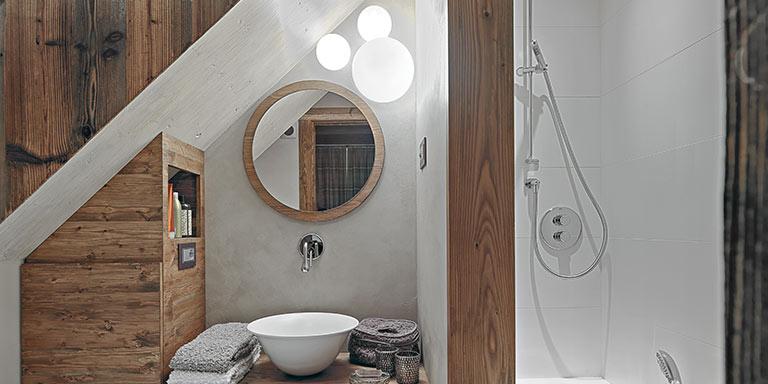
Water is one of the areas where some big savings can be made in your hotel. And you don’t need to spend a lot of money to do it. Hotels which are not water efficient can reduce their water use by over 50% in many cases. By effectively managing your water use you can promote your commitment to sustainability to your guests, reduce your local impact and save money. And you can make big changes while still making net gains. Win, win, win
How is this possible? By not paying for what you don’t use.
Introducing a new culture of managing water consumption can result in significant gains. If you start to monitor how much water your hotel uses, you might detect that you have a hidden leak or a part of the installation needs urgent maintenance. Once you are sure that everything works correctly, monitoring on a regular basis will let you discover any problem that has arisen well before it adds a digit or two to your water bill.
Water leaks can be responsible for huge amounts of wasted water. A leaking toilet can lose 750 litres of water per day, while a dripping tap can drip 70 litres a day down the drain. In large hotels, leaking taps can increase water consumption by 5%.
Even small leaks can waste a significant amount of water over time. One drip per second, it seems like nothing, but will add up to 4 litres lost each day, or 1460 litres if left for a year.
The main areas for water use in hotels are guest bathrooms, kitchens, laundry and communal toilet facilities. Even your staff play a part, with the average office worker using 16 litres of water daily – an amount that can be reduced without affecting their tasks or their comfort.
How to keep an eye on your water use.
Monitoring and benchmarking your water use is the first step to improving your water efficiency. This assessment of the baseline will allow you to know how you use water and measure the result of any changes you make. At a basic level, you can determine your baseline by recording your annual water consumption and comparing it to the number of guest nights. If possible, do it on a monthly or fortnightly basis and you will have a much finer grasp of changes.
Monitoring will allow you to ‘see’ your savings while showing any unexplained increases in use – this is a sign that you may have an undetected leak.
Develop and follow a water management plan. A plan will allow you to set specific goals for reducing your water use, measured by litres per guest night. Eliminating leaks and monitoring will immediately reduce your litres per guest night, giving you a great platform for moving forward with further reduction efforts.
Daily checks and reporting by housekeeping. Your housekeeping staff are the ones most likely to come across leaking toilets and dripping taps, so should be looking out for these leaks as part of their daily tasks. A system for written or electronic reporting, regularly checked by maintenance staff, should be established.
Kitchen staff should follow the same procedure for water leaks and drips discovered in your kitchen area.
Periodic inspections are needed to detect hidden leaks. Your maintenance staff should carry out periodic inspections on all areas and systems where leaks may occur, including:
- Pipe joints
- Appliances
- Heat exchange units.
An easy way to detect if there are hidden leaks is by checking the water meter a time (e.g. during hotel closure or in the middle of the night during off-peak periods) when there is no water use at all (all taps are closed, no water using appliance is on). If the meter keeps running, water is flowing somewhere, perhaps right into the ground or into the wastewater discharge. To know how considerable the hidden leaks are, you can read the meter again after an hour and multiply by 24 hours and 365 days to know how much you are wasting in a year.
An audit of water-using equipment can be used to identify possible ways to reduce water use through each appliance.
Sub-metering in large water-use areas, such as kitchens and pools, can be effective in larger hotels for getting greater insight into how water is being used, or wasted, throughout your hotel.
Water conditioning in hard water areas can reduce the chance of pipe leaks by reducing the calcification and mineralisation which may occur in pipes and fittings, in addition to the benefits to your guests.
Check the water pressure to avoid excess pressure. Adjust your water pressure where possible to the minimum required for the different uses. Excess water pressure can cause pressure on pipes and pipe joints, leading to leaks, and can encourage much more water to be used unnecessarily by staff, guests and appliances. In some appliances, excess water from high pressure will feed straight into an overflow system and be wasted.
Once you get started with your initial audit and implement checks and immediate repairs into your staff duties, you should quickly get on top of any issues you have with your water systems, and will no longer have to watch your hard-earned money flushed down the drain.
Encourage your staff to monitor and report drips and leaks. Please encourage them to take ownership of the issue in their area of responsibility and encourage them to share your hotel’s commitment to sustainability with your guests.
Details
- Publication date
- 31 October 2012
- Author
- Directorate-General for Environment
